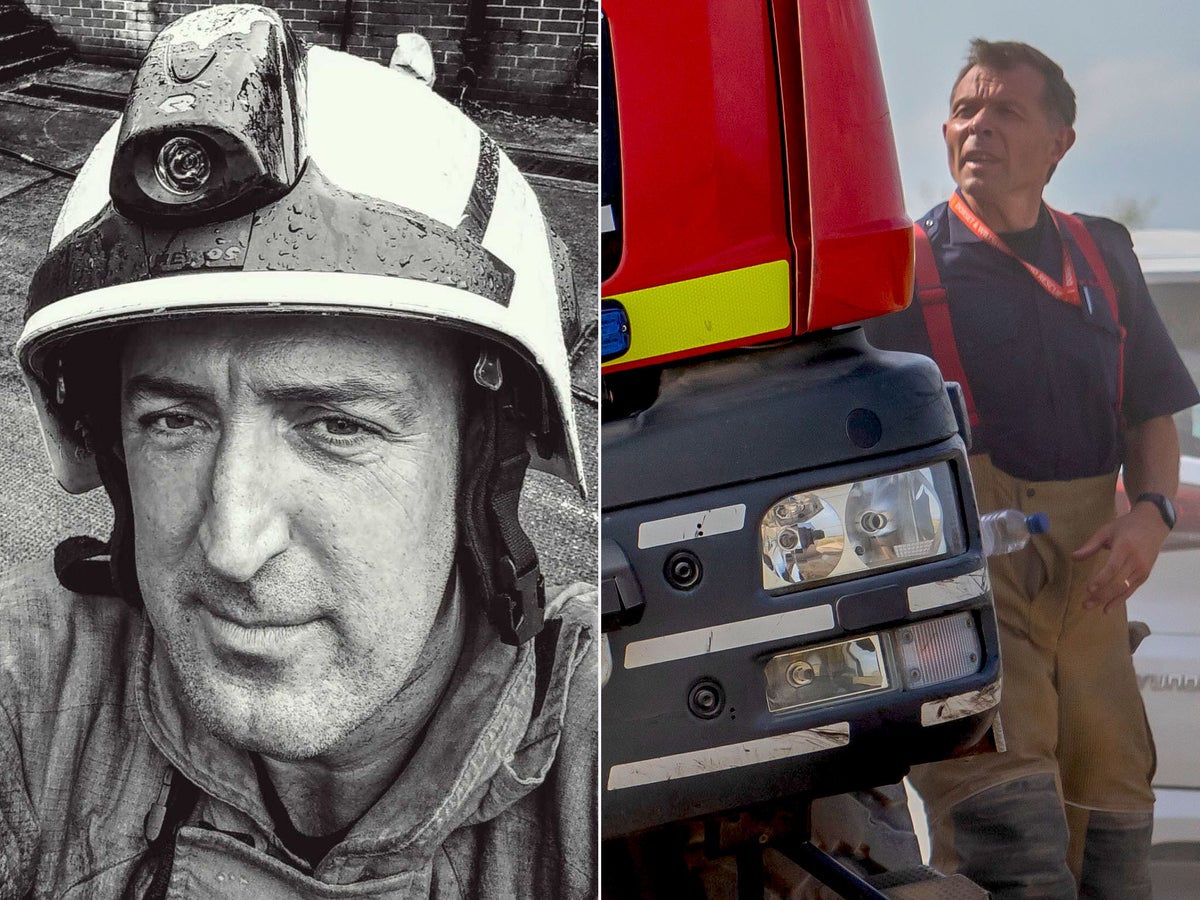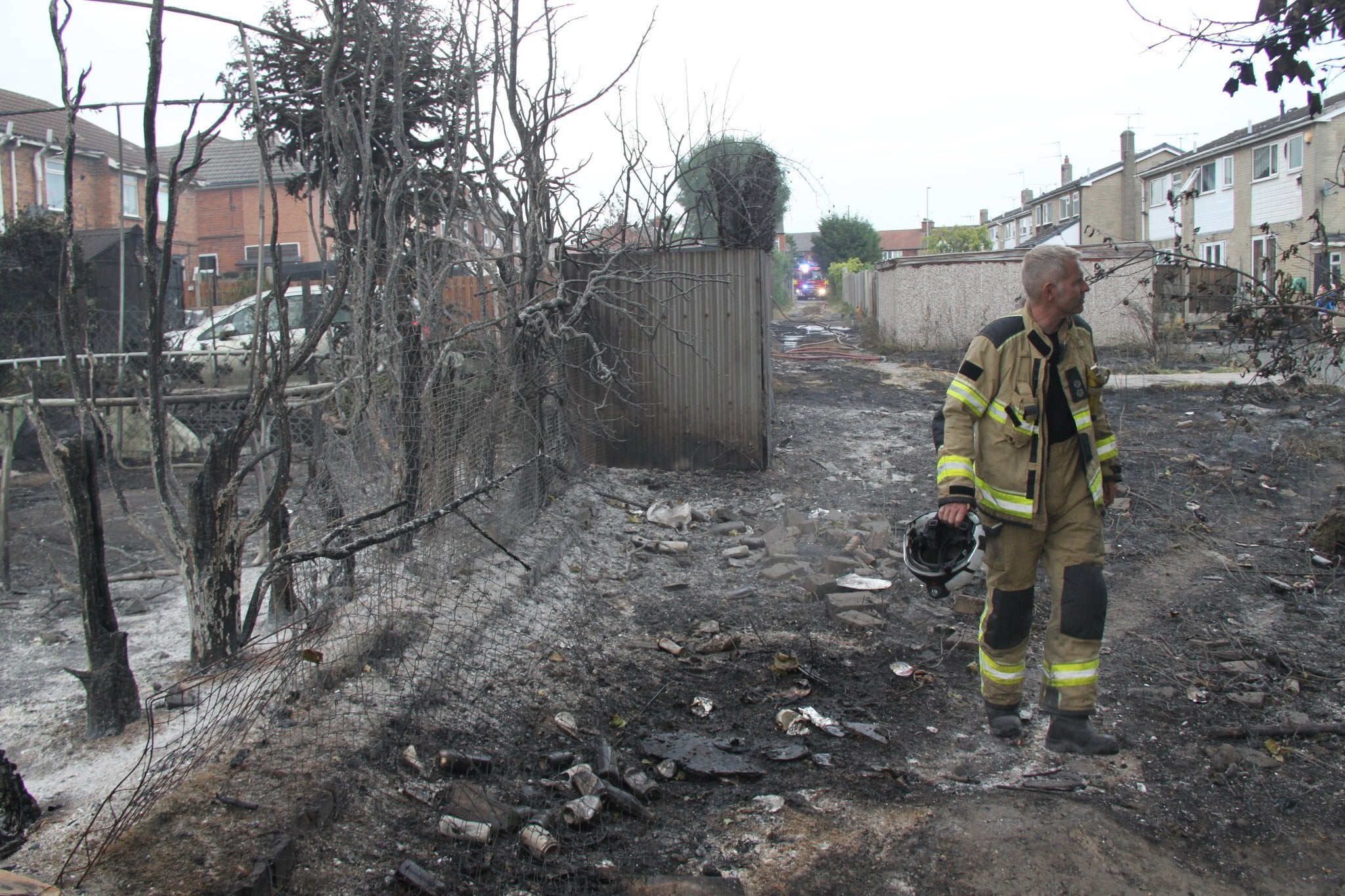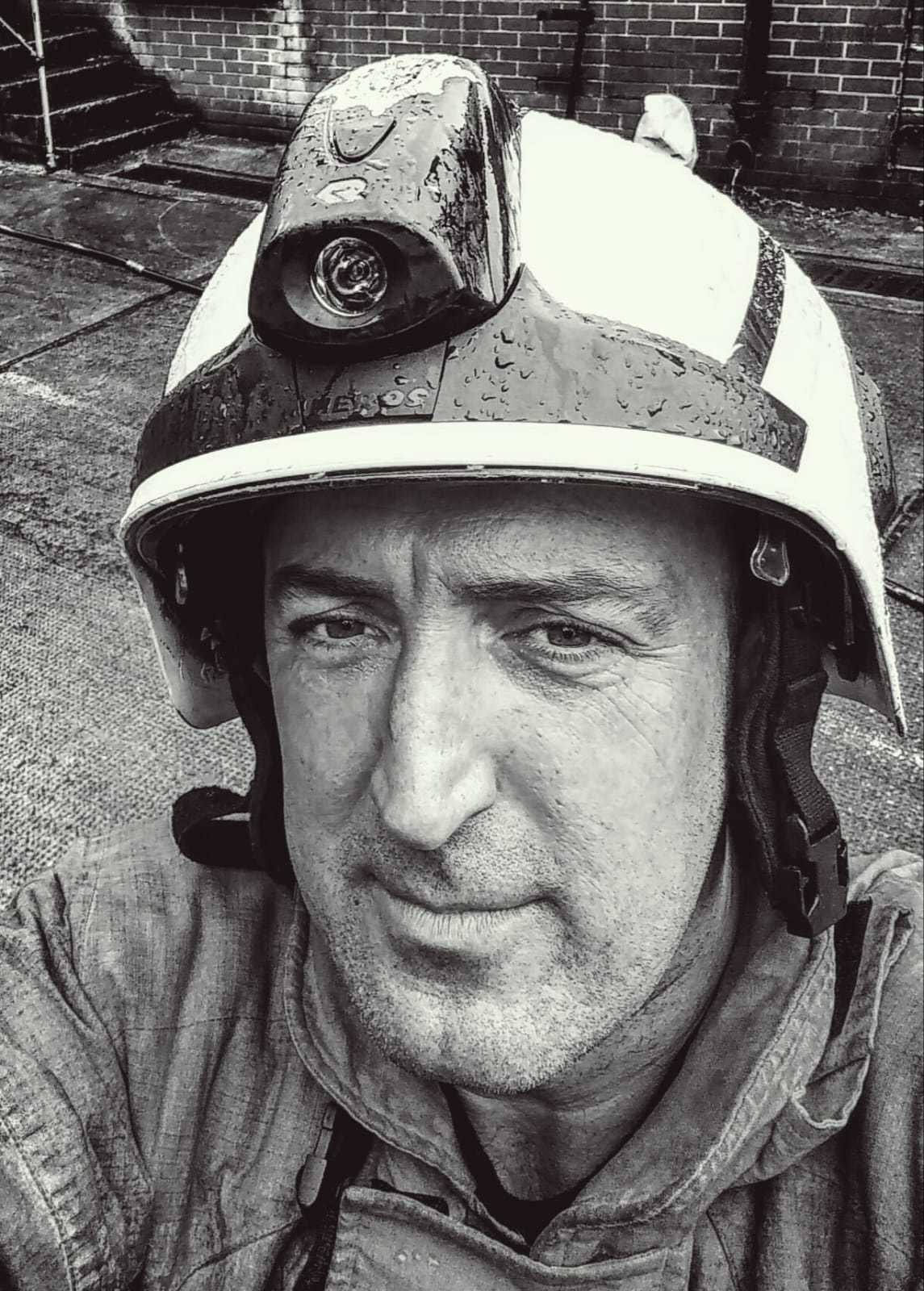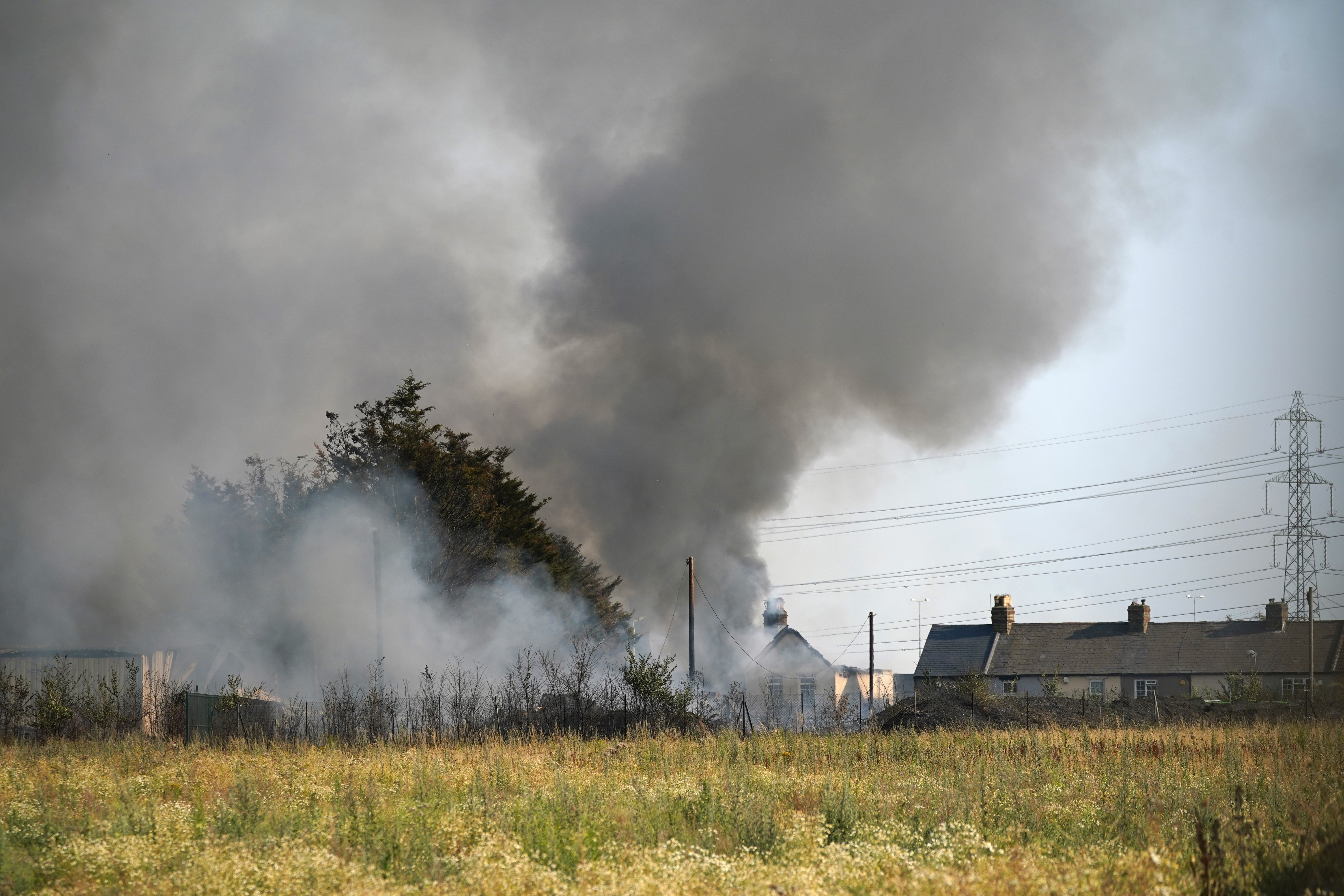
As Britain sweltered in record-breaking temperatures on Tuesday, there was one group who could not avoid the heat.
Firefighters spent the day tackling a surge in major blazes across the country, with a number of fire services declaring major incidents over the intense scale of demand.
And with record-breaking temperatures topping 40C, it was no easy feat.
“It was unbelievable. It was something I’ve not experienced before like that,” Nick Singleton from Essex Country Fire and Rescue Service said.
The station manager had been at the scene of a fire in Blidworth on Tuesday.
“I went through the sweating stage into not sweating and then I felt cold even though it was 40C,” he said.
Mr Singleton added: “Normally if you’re at a fire and you go in hot areas, you can move away from that and cool down.
“Yesterday, you could move away from it but you weren’t able to necessarily cool down because the temperatures were so high. So it was about taking on plenty of water and doing whatever you could to cool off.”
Blazes razed through houses and land as the UK experienced its hottest day on record, with fires hitting Nottinghamshire, Pembrokeshire, Kent, Leicestershire, Norfolk and Suffolk, among other places.
London was also hit by a number of blazes on Tuesday, with mayor Sadiq Khan saying it was the “busiest day” since the Second World War for its firefighters.

Chris Prodomis, a crew manager at a Derbyshire fire station, said it was “non-stop” for them “from the minute we woke up until midnight last night”.
His crew were “inundated” with calls and were sent far and wide – including to Loughborough and Nottingham.
His on-call crew from the Derbyshire village of Chapel-en-le-Frith had never been pulled in so many directions, he said.
The 36-year-old added: “It was a strange day.”
But there was little time for rest. After three hours’ sleep, he was back fighting a moor fire at around 4am on Wednesday.

For others, things had been hectic for a while before the heatwave peaked on Tuesday, with the UK experiencing days of hot weather in the run-up to the blistering heat.
“I think yesterday just came to a head, but I think for probably most services, it has been about two weeks of intense pressure,” Paul Clement from Dorset and Wiltshire Fire and Rescue Service told The Independent.
His crew had been tackling a wildfire on Salisbury Plain in the 10 days before. It was “pretty intense” and with “no shade”, with his crews not working in temperatures below 23C.

They left the scene on Tuesday afternoon only to head straight to another wildfire.
“On a personal note, I don’t think I had a square meal for 10 days,” the station manager told The Independent. Instead, he has been grabbing sandwiches and snacks when he can – and “mostly drinking warm water”.

As for the kit, Mr Clement said it can get sweaty at the best of times, with boots filled with water from sweat and stained with salt. But in the heat of the past few days, his station’s laundry service has struggled to keep up with the turnover.
“You’re just cleaning it off as best as you can with a sponge and popping it back on for the next one,” he said.
Matt Oakley, the fire investigation and safeguarding officer at Surrey Fire and Rescue Service, told The Independent the past two weeks had been “chaos”.
He battled a fire in Guildford in the extreme heat until 3am on Wednesday.

“I’ve known that this weather has been brewing for over a decade. I do a lot of work with the Met Office. So I’ve seen it coming,” he said.
“It just makes your workload that little bit harder because it’s hard to focus.”
He added: “When you’re trying to focus and concentrate on your decision-making skills and processes, it takes that extra bit of effort to keep your head focused on what you’re trying to achieve - for me, it was trying to establish the cause of a quite significant fire that made the occupants homeless.”
And as temperatures get hotter, there are increased risks around drier vegetation - which just needs ignition to light - and a growing population, he said.
He said there was “a lot of work” going into making sure there is a “protection barrier” for people who live in the countryside and woodland for when hot spells, such as the current one, occur.

Mr Clement, from Dorset and Wiltshire Fire and Rescue Service, said the climate crisis was very much on firefighters’ minds as they prepare for a hotter future.
“You can’t miss it, can you? It’s everywhere. And some of the meetings I go to, we talk about it,” he said.
He added: “I think as a service, we used to think about wildfire-type events in particular in Dorset with all the heath they’ve got down there. Never really associated it with Wiltshire so much - and yet we’ve been knee-deep in wildfire for the last two weeks up here.
“I can’t really comment on the deeper issues, but I think we are seeing different patterns in the incidents that we attend and definitely the frequency of wildfires is increasing.”







